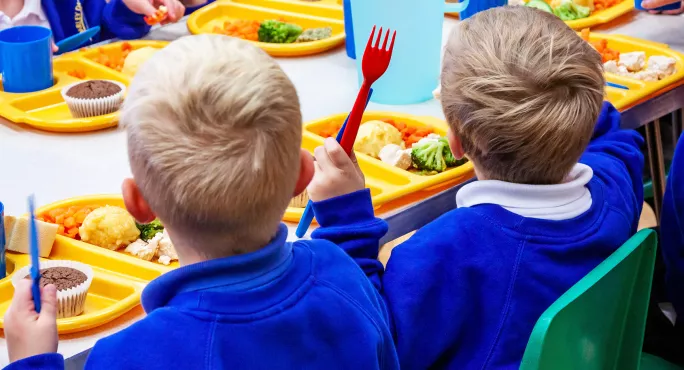This week, Labour took a bold step, forsaking Jeremy Corbyn’s previous manifesto commitment to universal free school meals (FSM) and ruling out the party supporting the policy as we head into the next election.
By stating: “This is not Labour policy and we have no plans to implement it”, the Labour hierarchy may have enraged some party members, but by setting out the party’s position, and doing so early, it has put itself on a more pragmatic footing with regards to its approach to future funding.
Greater priorities
With Labour likely to inherit a depressed economy and with limited capacity to fund the growing list of critical issues facing whoever takes over at the Department for Education, the fact is there are simply greater priorities.
From teacher pay to crumbling school buildings, from special educational needs and disabilities reform to pensions, there are huge financial challenges facing shadow education secretary Bridget Phillipson if and when she takes over in Sanctuary House.
Indeed, universal FSM is a phenomenally expensive policy and, despite what some people imply, simply giving everyone a free meal has few, if any, proven benefits.
I don’t think it’s unreasonable to wonder if there are other, possibly more efficient, ways to support families before committing billions to a policy whose main beneficiaries are middle and high earners.
Unfortunately, there is a tendency from supporters to oversimplify the policy: give everyone a meal or children will starve, we can address child obesity and ensure improve their health.
It shouldn’t need saying, but not every child is hungry, not every packed lunch is bad, and not every school meal is healthy.
Stigma issues overplayed
However, perhaps the loudest call for universality is the binary narrative around the stigma of receiving FSM that suggests making them free for all is the only way to address the horrors of pupils being singled out.
How often do we hear politicians scaremongering, harking back to historic tropes of separate queues, the poorest children eating last and different coloured tickets?
But stigma over receiving a FSM is incredibly rare, not least because the vast majority of schools use cashless systems and schools are at pains to ensure no one knows who pays and who doesn’t.
The logical step would be to expand best practice on this to all schools and ensure all FSM pupils aren’t identified. It won’t stop the stigma of being poor - but neither will universal FSM, but it would cost billions to implement.
Those costs matter as, so often, attempts to make a positive of FSM for all ignores the tough financial reality it creates - especially if schools are expected to pick up the tab.
Making schools pick up the tab
Unfortunately, what’s happening with mayor Sadiq Khan in London right now, he’s set a daily amount that will leave many schools out of pocket and refused to commit any money towards infrastructure, with trusts and councils expected to cover the costs from non-existent reserves.
But he’s not alone, we’ve seen this play out numerous times, from the universal infant FSM capital funding spat between Nick Clegg and Dominic Cummings to the SNP abandoning expansion of its universal FSM policy, and the latest news of the Welsh government cutting support for its holiday food programme because of budgetary constraints.
The fundamental issue is that universal FSM is an appealing-sounding policy that always ends up being much more expensive than politicians think.
Of course, it’s not wrong to aspire for every pupil to sit down for a free hot and nutritious lunch - but until schools are all properly and sustainably funded, and we’ve lifted every child out of poverty, then Labour are right: universal FSM are not a priority and it’s money that could be better spent elsewhere in the school system.
Andy Jolley is a former school governor and free school meals campaigner




